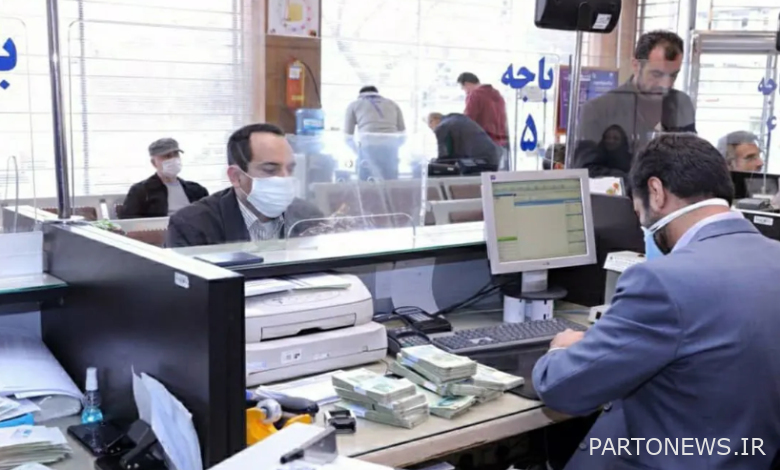Why does the central bank not deal seriously with the banking of banks?

According to Iran Economist, in his recent statements, the Governor of the Central Bank announced the cause of many problems in the banking system as the banking system of the banks and talked about the plans of the Central Bank to improve these conditions.
One of the challenges of Iran’s economy in the country’s banking system is the banking of banks; A challenge that is considered one of the important reasons for the dissatisfaction of banks, and this dissatisfaction with the way of over-borrowing by banks from the central bank, fuels the fire of inflation.
Even though bank corporatization has a long history in Iran’s economy, this issue has peaked in recent years and has been the focus of governments. So that government and central bank officials have tried many times to prevent the spread of this issue by threatening banks.
Even not long ago, the wall painting of Valiasr Square in Tehran was also dedicated to this issue with the sentence “Banks are wrong to do business with people’s money”, which was from the leader’s speech in 1997 addressed to the government officials. Of course, it did not take long that the pressure of the banks caused this mural to be collected.
In recent days, one of the main topics of the joint meeting between the Governor General of the Central Bank and the CEOs of the banks was the issue of banking, and Mohammad Reza Farzin, stressing that a single prescription cannot be prescribed for all banks in this context, announced that the banking activity of commercial banks is acceptable. It is not, and these banks should get out of business by selling the companies.
The role of companies in banking network problems
The head of the central bank continued his remarks in this meeting and explained: “Today, we see that some banks, which are commercial banks, are doing business, and this has become a fundamental problem for the banking network. “For several years, this issue has been seen both in the law on removing production obstacles and in the program law, but it has not been resolved yet.”
He further added: “If a bank runs a business, there should be supervision over these companies as well.” Because now there are banks that do corporate work, but due to the influence of shareholders, both governmental and non-governmental, inefficiency prevails over the corporations. So that many of the issues and problems of the banking network are caused by the events that happen in the companies and the Central Bank has no knowledge.”
The head of the Money and Credit Council mentioned the presence of multi-layered companies as another problem in bank management and explained that this makes monitoring difficult and increases the possibility of corruption. So much so that in some cases even the board of directors of the banks are not aware of what is happening in these companies.
The need to choose managers outside of political functions
Of course, in his statements, Farzin considered the central bank as the representative of protecting the rights of depositors in the banking network and emphasized that in addition to monitoring the banks, the central bank should also be aware of the process of events that occur in their affiliated companies. Because bank companies are created with people’s deposits and this money belongs to the people.
He also avoided the issue of choosing bank managers and companies related to these banks and emphasized that the entry of experts in management positions should be outside of political functions. Because the prevailing pressures in this field harm the banking of banks, and the Central Bank’s supervision deputy must have a specific plan for this sector as well.
Why do banks do business?
As Farzin emphasized, the central bank, as the supervisory body in the banking system, is responsible for dealing with banks in the field of corporate governance. However, it seems that the performance of the central bank in this field has been limited to threatening bank managers and has been fruitless. However, experts believe that this issue should be looked at more deeply.
Although various factors have an effect on the occurrence of such problems, chronic inflation in Iran’s economy, followed by incorrect economic policies, play an important role in this.
The suppression of the interest rate in Iran’s inflationary conditions has made the real interest rate negative in the country’s economy and has made banking operations unprofitable for banks. Therefore, banks turn to activities other than banking operations to earn money.
In the meantime, a large part of the banks’ capital goes to the housing market. Because the housing market in Iran’s economy has always been profitable and almost risk-free. That is why, according to the official reports of the central bank, the daily value of the immovable property of 16 banks reaches more than 150 thousand billion tomans.
One thousand and one problems for selling surplus property of banks
On the other hand, it seems that despite the great emphasis on the need to sell surplus assets of banks, the conditions are still not ready for this issue.
A topic that Hadi Ekhli, the CEO of Tejarat Bank, mentioned a while ago and said: “Currently, if banks want to sell their assets, they face a thousand and one problems. Banks worry about being accountable to multiple people after selling their assets. Therefore, the reasons for this should also be provided.”
Therefore, in addition to pursuing its supervisory role more seriously, the central bank must also provide the conditions for the sale of surplus assets of banks. Nevertheless, the most important action in this direction is to solve the root problems of the banking system so that banks do not have an incentive to do business.

